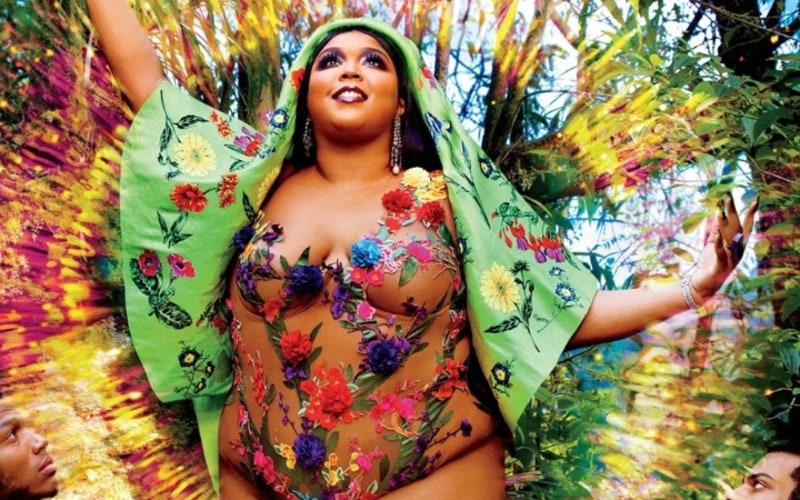Lizzo opened up about struggling with body dysmorphia while gracing the cover of Rolling Stone's February issue.
Her stunning photo shoot was conducted by legendary pop-culture photographer David LaChapelle. LaChapelle's work has been known to capture celebrities at their height and usually oozing confidence, like Tupac posed as a hip-hop Christ and Lil' Kim covered in Louis Vuitton.
.@Lizzo looks incredible gracing the cover of @RollingStone. (????: David LaChapelle) pic.twitter.com/Qd50kwgxQl
— Pop Crave (@PopCrave) January 22, 2020
Though the "Soulmate" singer's fierce photo shoot shows a woman who is undeniably confident, the pages within reveal Lizzo's battle with self-esteem and body dysmorphia.
The 31-year-old's meteoric rise to fame was a 10-year hustle in the making. After dropping out of the University of Houston at 20 years old due to money and the stressors of keeping up, she never let her music goals die. Instead, she wanted her music to reflect not only a look into the self-love she's reached but also a hard push for the listener to love themselves too. She basically makes self-esteem booster shots. But it wasn't always this way.
Lizzo remembered that her desire to conform to unrealistic European standards of beauty, and men's desire for that standard, had her delusional.
When she was 19, she said would try to be someone she wasn't: a white girl.
“Skinny guys like me,” she said. “But I remember he was like, ‘I’m a little guy. I need a little girl.’ ”
The full-figured diva said that because it was the early 2000s, she tried to emulate Zooey Deschanel. But, she realized how unrealistic that was.
“I can’t just wake up and be a white girl.”
When that young relationship ended, it forced her to ask herself a question she always tries to ask in her music to this day: “How can you be in love with someone when you’re not even you?”
Lizzo credits that early heartbreak, and tough questions, with compelling her to truly self-reflect and embrace all of herself.
“I’ve come to terms with body dysmorphia and evolved,” she said.
Body dysmorphic disorder (BDD) is a condition characterized by the obsessive idea that some aspect of your body or appearance is flawed, according to the Mayo Clinic.
Body dysmorphic disorder causes some people to intensely focus on what they perceive to be flaws in their appearance. In severe instances, the affected repeatedly check the mirror, groom and seek reassurance for many hours each day. Their perceived flaw and repetitive behaviors cause them significant anxiety. BDD is often considered to be on the obsessive-compulsive spectrum.
The affected may go through with several cosmetic procedures to try to "fix" their perceived flaw. Afterward, temporary temporary satisfaction or a reduction in stress occurs, but often the anxiety returns.
Of course, BDD isn't exclusively tied to surgeries sometimes BDD symptoms can include:
- Avoiding mirrors
- Not allowing your picture to be taken
- Repeatedly touching, checking, or measuring the perceived flaw
- Wearing excessive makeup or growing a beard solely to cover up the flaw
- Wearing certain types of clothing, like hats and scarves, to cover up the flaw
Lizzo credits the body-positive movement with helping her spread self-love:
“The body-positive movement is doing the same thing. We’re growing together, and it’s growing pains, but I’m just glad that I’m attached to something so organic and alive.”
She also talked about her intention to have one of her deeper cuts, "Coconut Oil," serve as a self-love anthem for Black women.
"As a Black woman, I make music for people, from an experience that is from a Black woman,” she told the publication. “I’m making music that hopefully makes other people feel good and helps me discover self-love. That message I want to go directly to Black women, big Black women, Black trans women. Period.”
